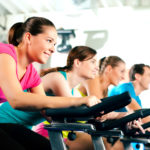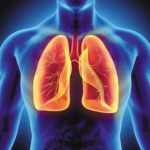Exercise caution. Exercise common sense. Just exercise!
Now more than ever we need to consider movement as medicine. In light of the unknown and potentially devastating impact of COVID-19, there are so many reasons to stay active and get your daily dose.
Exercise supports immune function and mental health

First up, we know that exercise can support our immune system and mental health. A recent article from Exercise Right cited contemporary evidence which found a physically active lifestyle reduced the incidence of communicable diseases (bacterial and viral infections) and non-communicable diseases (eg. cancer). In a nutshell, immune function is enhanced by regular exercise! How much exercise do you need to get the benefits? It seems that moderate duration and intensity are your best bet. Not enough exercise and the immune response isn’t illicited, but exercising at too high intensity or duration beyond what your body is accustomed too may result in minimal immune response, similar to that of sedenary behaviour. It makes sense that progressively building intensity and duration is ideal, with those that regularly performing more strenuous exercise having fewer annual sick days.
During times of uncertainty, controlling the controllable can be a great strategy for maintaining mental health and wellbeing. There are a lot of unknowns at the moment, but taking action on the aspects of your health that are in your control is empowering and can help to minimise stress or anxiety. Get back to basics and never underestimate the positive effect of eating nutritious food, exercising and getting a good night’s sleep. We know that even 10 minutes of exercise can improve your mood, with light or moderate exercise still having a positive effect. Exercise can reduce the symptoms of depression, anxiety and stress, as well as protecting against mental health decline. Read more about the connection between exercise and mental health
High risk populations

Those with chronic conditions, particularly those not meeting Physical Activity Guidelines, may be at greater risk of contracting Coronavirus and experiencing more severe symptoms. Be proactive about optimising your health to minimise the impact of the Coronavirus as an individual, for our community and for the healthcare system. Exercising for more than two hours each week, performing activities such as walking or cycling, can improve the health of people with chronic lung and cardiac conditions. Regular exercise can also reduce the need for hospitalisation, with walking being one of the most beneficial inclusions of an exercise program for cardio-respiratory health.
Immune-compromised and immunosuppressed populations are also at higher risk, which includes people with Cancer and autoimmune conditions. Again, the benefits of exercise for these populations is well-established, so keeping active becomes of increased importance to minimise the impact of COVID-19 for these populations. Find at more about Exercise as Medicine for Cancer.
I’m young, I’ll be fine

So you’re young with no chronic conditions… great, you still need to exercise and support your immune system! In Australia, the number of people aged under 40 with confirmed cases of COVID-19 has started to grow, following the trend seen internationally. No longer can we assume that those are still considered low-moderate risk, won’t be effected. Limited or no access to gyms and allied health services are also going to impact the broader health and wellbeing of all age groups.
“When it comes to exercise, we are also not just talking about young people. In 2018, a study by University of Birmingham and King’s College London found that 125 non-smoking amateur cyclists aged 55 to 79 still had the immune systems of young people.” explained the CEO of Exercise & Sports Science Australia (ESSA), Anita Hobson-Powell.
Exercise Right during the COVID-19 Pandemic
The first step is of course following the advice from the WHO and the Department of Health for up to date advice in your area. If it’s safe for you to do so, continue attending your ususal gym or completing your usual exercise routine, but step up your hygeine game. Take your own towel and water bottle, wash your hands thoroughly before and after your session, use hand sanitiser, and use disinfectant wipes on all equipment during your work out. If your gym hasn’t significantly increased their cleaning and hygeine processes, find somewhere that has.
If you’re new to exercise, start slow and build your tolerance. Understanding the right exercise for each individual and circumstance is key and an Accredited Exercise Physiologist is the trained health professional who can assist you if you’re unsure.
There are endless ways to exercise, even if you’re in self-isolation, but stay safe and don’t try something you’re not experienced doing without support or supervision. Check out more advice on Telehealth so you can Exercise Right from home.
